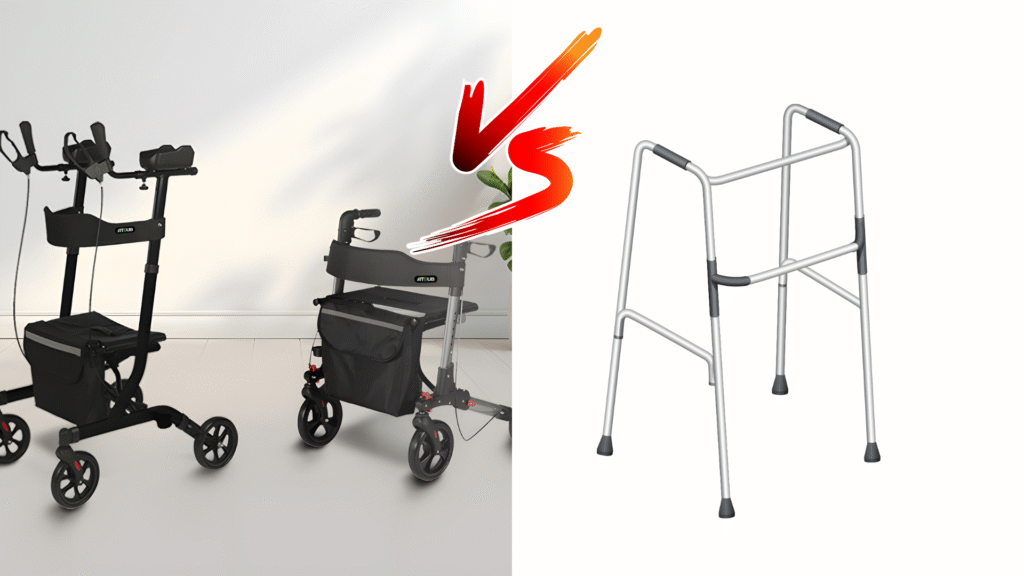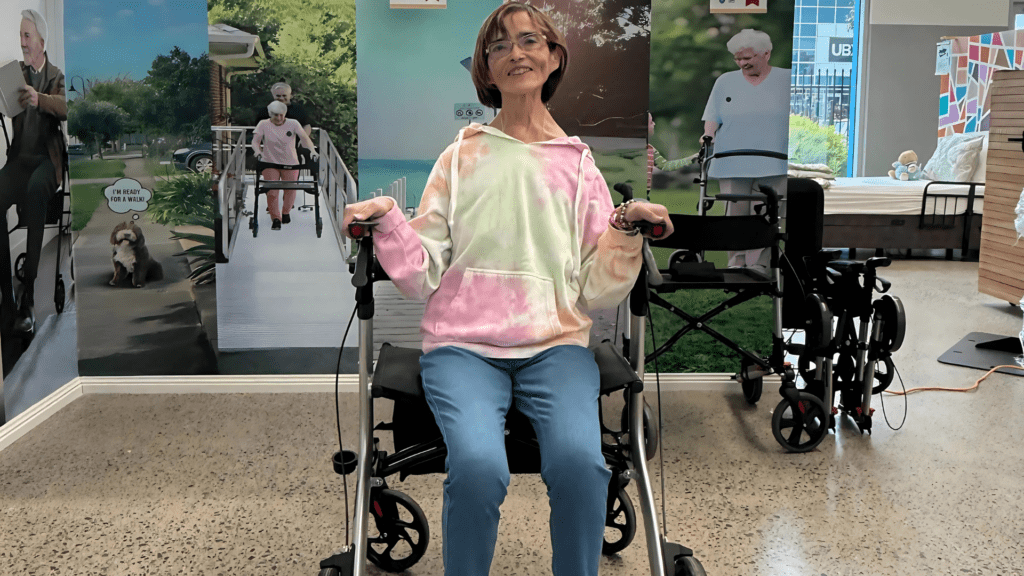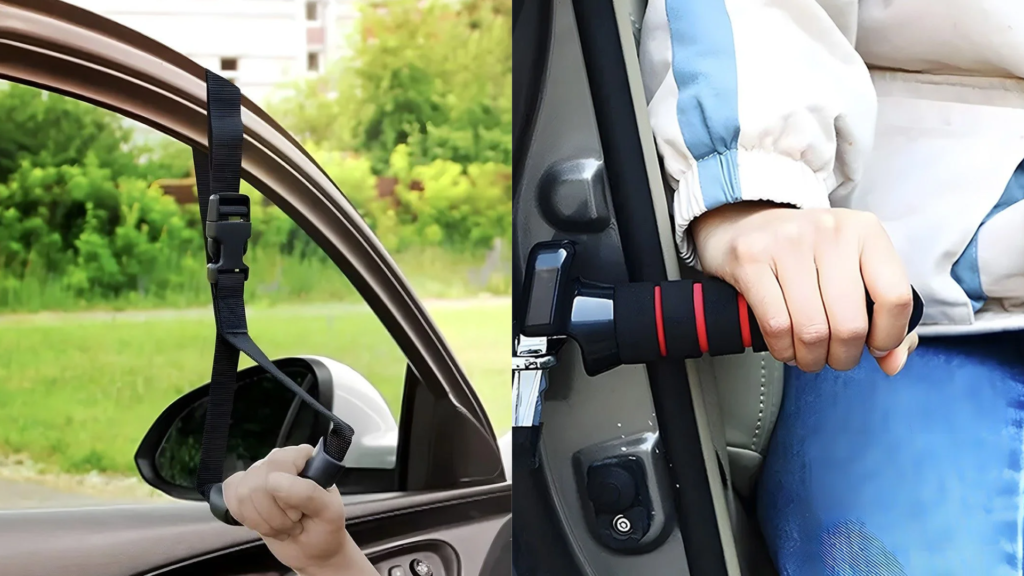Introduction: Choosing the Right Walking Aid Matters
Selecting the right walking aid can significantly improve mobility, safety, and independence for seniors and people with disabilities. Walkers for seniors and rollators are two popular options, each designed to meet different needs. Care With Us Australia offers a wide range of walkers and rollators suitable for NDIS participants, aged care users, and allied health-recommended therapy plans.
Understanding Walkers for Seniors
Walkers are stable, frame-based mobility aids that provide support and balance for seniors, especially those recovering from injury or with limited strength. Common types include:
- Standard walkers
- Walkers with seats
- Folding and foldable walkers for easy storage
Double Folding Rollator Walker and Heavy Duty Rollator Walker are complementary solutions for users needing more mobility versatility.
Benefits of Walkers for Seniors
- Maximum stability and support for users with balance issues
- Ideal for indoor use and short distances
- Lightweight and foldable options for easy transport
- Some models come with seats for resting during use
Walkers are particularly suitable for seniors who require consistent support and prefer a simple, sturdy design.
Exploring Rollators: Features and Advantages
Rollators are wheeled walking aids with features like brakes, seats, and storage baskets. They are designed for active users who need mobility assistance without sacrificing convenience. Benefits include:
- Easier navigation over longer distances
- Built-in seats for quick rest breaks
- Storage options for personal items
- Adjustable height and ergonomic handles
Upright Rollator Walker provides a versatile solution for both indoor and outdoor use.
Comparing Walkers vs Rollators
| Feature | Walkers | Rollators |
| Stability | Very high | Moderate (with brakes) |
| Wheels | None or small | 2–4 larger wheels |
| Seating | Optional | Standard on most models |
| Storage | Rare | Built-in baskets |
| Best Use | Indoors, short distances | Indoors/outdoors, longer distances |
| Ideal Users | Balance-challenged seniors | Active seniors or those needing rest breaks |
Choosing Based on User Needs and Environment
When selecting a walking aid, consider:
- User’s balance and strength
- Home layout (stairs, narrow spaces)
- Outdoor use requirements
- Frequency and distance of walking
Allied health professionals often recommend walkers for home use and rollators for mixed indoor/outdoor mobility.
Lightweight and Foldable Options
Lightweight and foldable models enhance portability and storage. They are particularly suitable for NDIS participants who need easy transport for appointments, shopping, or travel.
NDIS and SWEP Approved Walking Aids
Many walkers and rollators are NDIS-approved and SWEP-supported in Victoria, ensuring funding options are available for eligible seniors and carers. This makes professional mobility aids more accessible and affordable.
Occupational Therapist Recommendations
Occupational therapists recommend choosing mobility aids based on:
- User’s physical strength and endurance
- Preferred walking surface (carpet, outdoor terrain, tiles)
- Safety features such as brakes and padded handles
- Regular reassessment for continued suitability
Safety Considerations and Proper Usage
- Ensure handles are at correct height for posture
- Lock brakes before sitting on a walker or rollator seat
- Inspect for wear and tear regularly
- Avoid overloading baskets to prevent tipping
Proper use increases safety and prolongs the life of the mobility aid.
Conclusion
Choosing the right walker or rollator improves independence, safety, and confidence for seniors and people with disabilities. Care With Us Australia provides a range of walkers and rollators, including foldable, seated, and heavy-duty models, supported by NDIS and SWEP funding.
View All Walkers in the Store | Enquire About a Product
Frequently Asked Questions
1. What is the difference between a walker and a rollator?
Walkers provide maximum stability without wheels or with small wheels, while rollators have larger wheels, brakes, seats, and storage for longer-distance mobility.
2. Can I use a rollator indoors?
Yes, but ensure it fits your space and can be maneuvered safely around furniture.
3. Are NDIS walkers for seniors funded?
Many walkers and rollators are NDIS-approved in Victoria, and SWEP funding may also apply.
4. How do I choose between a seated walker and a regular walker?
Consider your endurance and need for rest breaks—walkers with seats are ideal for users who tire easily.
5. Can walkers and rollators be folded for travel?
Yes, lightweight and folding models are designed for easy transport and storage, ideal for trips and appointments.



